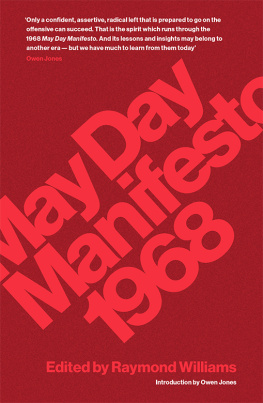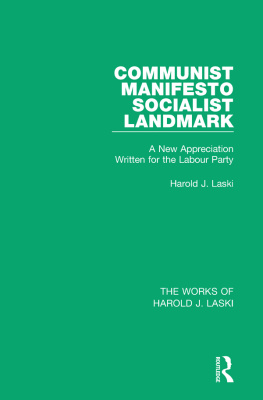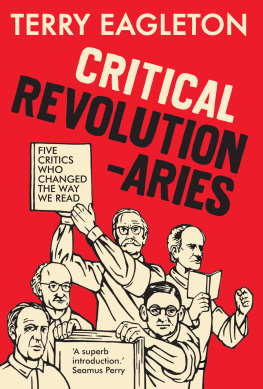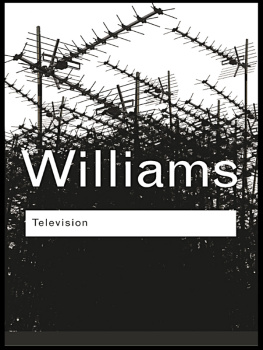Owen Jones
It was a time of rebellion, revolution, struggle, occupations, strikes and of living, breathing hope that the old order was in collapse, and that a new society was possible. Nineteen sixty-eight is perhaps best remembered for les venements of May and June in France: the tidal wave of street demonstrations, factory and university occupations, and barricades. The red flag was hoisted over factories, protestors sang The Internationale, and revolutionary slogans adorned posters and banners and were daubed on walls, like: Humanity will not be happy until the last capitalist is hanged with the entrails of the last bureaucrat. With 150 million working days lost to strike action in Frances biggest ever industrial upheaval, Pariss police warned of a pre-revolutionary situation, and the French premier, Georges Pompidou, declared on television that those in revolt were bent on destroying the nation and the very foundations of our free society.
In London, fireworks were thrown as thousands of anti-Vietnam War protestors attempted to storm the US Embassy. Across Italy, universities were occupied as the so-called Sessantotto movement challenged a rotten status quo. It proved to foreshadow the hot autumn of the following year as Italian society was convulsed with strikes: sixty million working days were lost to industrial action.
In West Germany, tens of thousands of students and workers demonstrated against the Vietnam War, a right-wing media establishment which whipped up hatred against left-wingers, and the establishments continuity links with Nazism. In Mexico City, an insurgent student movement was met with sickening government brutality, with hundreds slaughtered by the regime. In Czechoslovakia, the so-called Prague Spring and the attempt to build Socialism with a human face was suppressed by a Warsaw Pact invasion. The United States was convulsed by the struggles of the civil rights movement, the anti-war movement, mass student occupations, and protests led by the increasingly radical Students for a Democratic Society.
Thats the context in which this Manifesto should be seen. This was a time of ferment, of growing disillusionment with Keynesian consensus capitalism, Western imperialism, and Stalinist authoritarianism. The British New Left which finds its definitive political expression in this Manifesto cannot be divorced from these trends.
Reading the Manifesto today, it is easy to be struck by the similarities and the differences. There is the obvious preoccupation with inequality of wealth and income, as well as poverty: back then, 14 per cent were classed as living in poverty, compared to over a fifth today.
The Manifesto rightly hails the NHS as a major attempt to establish a new standard of civilized community care, but bemoans dilapidated hospitals; bad pay and conditions as well as the draining of the public sector for private medical provision. Todays NHS has been subject to privatisation and marketisation under both New Labour and the Tories; the longest squeeze in funding as a proportion of the economy since its foundation; and growing pressures because of the attacks on social care funding. Its nurses are suffering a real-terms pay cut of 12 per cent over a decade while staff shortages and waiting lists represent growing crises.
Public ownership was supposed to mean the substitution of communal co-operation for the divisive forces of competition, declares the Manifesto. And indeed, the privatisation of utilities such as water, energy and rail has been nothing short of a disaster. Rail ticket prices are some of the highest in Europe and overcrowding blights the network, while subsidies are far greater than in the days of British Rail. Water privatisation is such a calamity that even the Financial Times considered the case for public ownership, declaring that the sell-off looked like little more than an organised rip-off. And the Manifesto launches an assault on the barbarous US assault on Vietnam. Today, the calamitous US-led wars in Afghanistan, Iraq and Libya have left an unimaginable human cost hundreds of thousands dead, millions injured and traumatised, millions displaced, trillions of dollars wasted, nations economically ruined and driven the rise of extremist groups.
Of course, the differences between the age of this Manifesto and our current era are multiple. Stalinism is effectively gone, both as a really existing social system and a coherent mass political force in Western societies. When the Manifesto was written, a social-democratic consensus a class compromise established in the aftermath of the Second World War governed Britain and much of the Western world. It was inadequate, often plastering over deep injuries inflicted by capitalism with solutions that could be and, in due course, were stripped away. But with its fusion of strong unions, high taxes on the rich, nationalisation of sectors of the economy, and extensive state intervention, it did produce the greatest combination of economic growth and increased living standards in British history.
The current one is no age of prosperity: we are still suffering the devastating economic consequences of a crash caused by an unregulated financial sector. Austerity has inflicted particular misery on low-paid workers, disabled people, and young people, while public services have been shredded. Our governing ideology, today, is neoliberalism, which champions the maximum elimination of the public sphere in favour of market forces, the slashing of taxes on the rich, mass deregulation, and the destruction of collective organising. The consequences have included the imposition on British workers of the worst squeeze in wages of any OECD country other than Greece, over the longest period since perhaps the eighteenth century.
There is one key similarity between the times. The Manifesto was written at a time of increasing left-wing confidence. As the Manifesto demonstrates, the left was carving out and articulating a coherent alternative to the way society was ordered. Until relatively recently, the contemporary left was fragmented and isolated, and in a defensive position, largely trying to preserve existing gains which were being rolled back. That has changed, and in a manner which would profoundly surprise many of the Manifestos signatories. The Manifesto was very sceptical about Labours potential as a vehicle for socialist transformation, casting scorn on the partys much trumpeted status as a coalition, believing it was a confidence trick that merely led to the lefts incorporation, taming, and sidelining from power and influence. It is somewhat astonishing, then, that in 2015 when the Labour left was in its weakest position in the partys history it took party leadership in the form of Jeremy Corbyn. After eighteen months of internal struggle, the leadership was able to present a manifesto to the British public in the 2017 general election and win 40 per cent of the vote, consolidating its position within the party.














